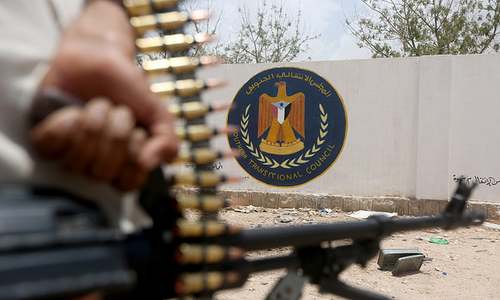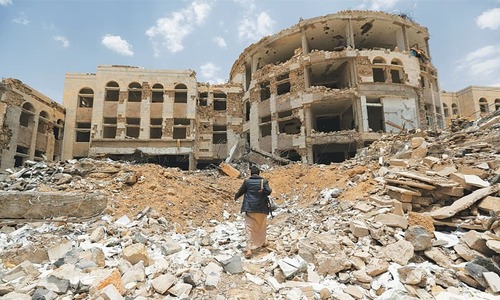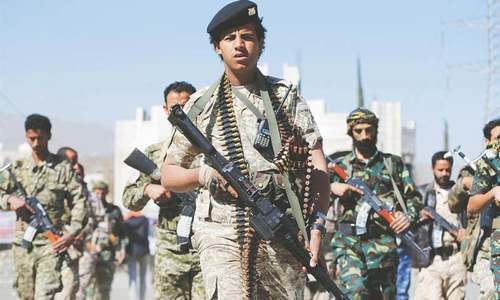Yemen's southern separatists have struck a power-sharing deal with the internationally-recognised government aimed at ending a conflict simmering within the country's long-running civil war, sources on both sides said on Friday.
The deal would see the secessionist Southern Transitional Council (STC) handed a number of ministries, and the government return to the southern city of Aden, according to officials and reports in Saudi media.
The Security Belt Forces — dominated by the STC — in August took control of Aden, which had served as the beleaguered government's base since it was ousted from the capital Sanaa by Iran-backed Huthi rebels in 2014.
The clashes between the separatists and government forces — who for years fought on the same side against the Huthis — had raised fears the country could break apart entirely.
The warring factions have in recent weeks been holding indirect and discreet talks mediated by Saudi Arabia in the kingdom's western city of Jeddah.
“We signed the final draft of the agreement and are waiting for the joint signature within days,” an STC official currently in Riyadh told AFP.
Both Yemen's President Abedrabbo Mansour Hadi and STC leader Aidarous al-Zoubeidi are expected to attend a ceremony in Riyadh, he added.
A Yemeni government official, declining to be named, confirmed the deal had been agreed and was expected to be signed by Tuesday.
It sets out “the reformation of the government, with the STC included in a number of ministries, and the return of the government to Aden within seven days after the agreement being signed,” he told AFP.
Saudi Arabia's Al-Ekhbariya state television said a government of 24 ministers would be formed, “divided equally between the southern and northern governorates of Yemen”.
Under the deal, the Yemeni prime minister would return to Aden to “reactivate state institutions”, it added.
Al-Ekhbariya said the Saudi-led military coalition which backs the government against the Huthis would oversee a “joint committee” to implement the agreement.
Uneasy allies
The military coalition led by Saudi and the United Arab Emirates (UAE) intervened in Yemen in 2015 as the Huthi rebels closed in on Aden, prompting Hadi to flee into Saudi exile.
The conflict has since killed tens of thousands of people — most of them civilians — and driven millions more to the brink of famine in what the United Nations calls the world's worst humanitarian crisis.
Complicating the fighting in Yemen are deep schisms within the anti-Huthi camp. The supposedly pro-government forces in the south, where power is centred, include pro-independence factions from the north.
The south was an independent state before being forcibly unified in 1990, and the STC has said it wants to regain its lost status.
The separatists have received support and training from the UAE, even though it is a key pillar in the Saudi-led coalition.
Abu Dhabi accuses Yemeni authorities of allowing extremist elements to gain influence within their ranks.
The mistrust between the allies has posed a headache for regional powerhouse Saudi Arabia, which remains focused on fighting the Huthis who are aligned with Riyadh's arch foe Iran.
The UAE earlier this month handed over to Saudi forces key positions in Aden in a bid to defuse the tensions, and to support the negotiations towards a power-sharing deal.
Riyadh in recent days appointed a new foreign minister whose complicated portfolio also includes efforts to strike a broader Yemen peace deal.
The Huthis have offered to halt all attacks on Saudi Arabia as part of a peace initiative to end the devastating conflict, later repeating their proposal despite continued air strikes from the Saudi-led coalition.
The offer came after the Huthis claimed responsibility for attacks on September 14 against two key Saudi oil installations that temporarily knocked out half of the OPEC giant's production.
Riyadh and Washington, however, blamed Iran for the attacks — a charge denied by Tehran.































